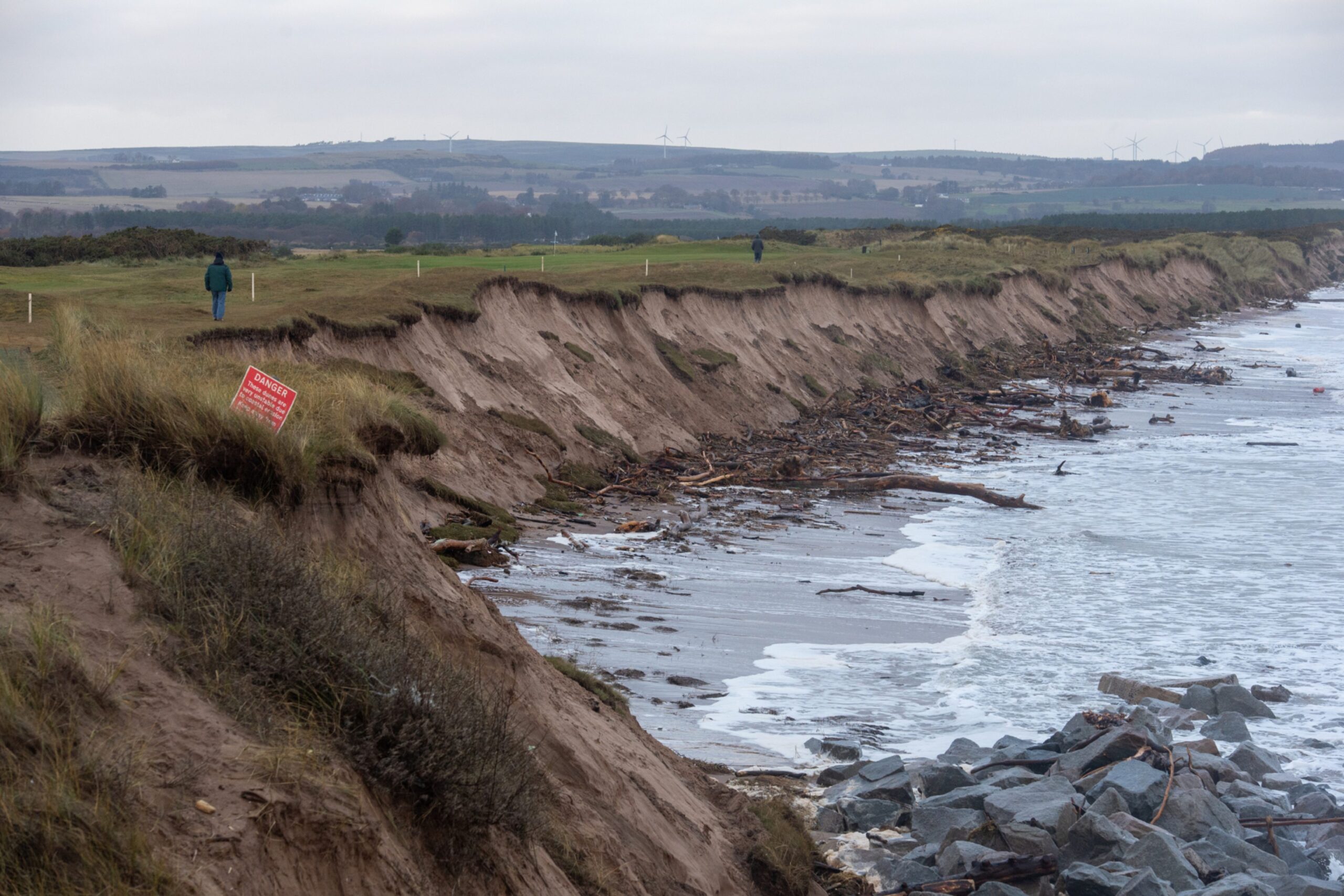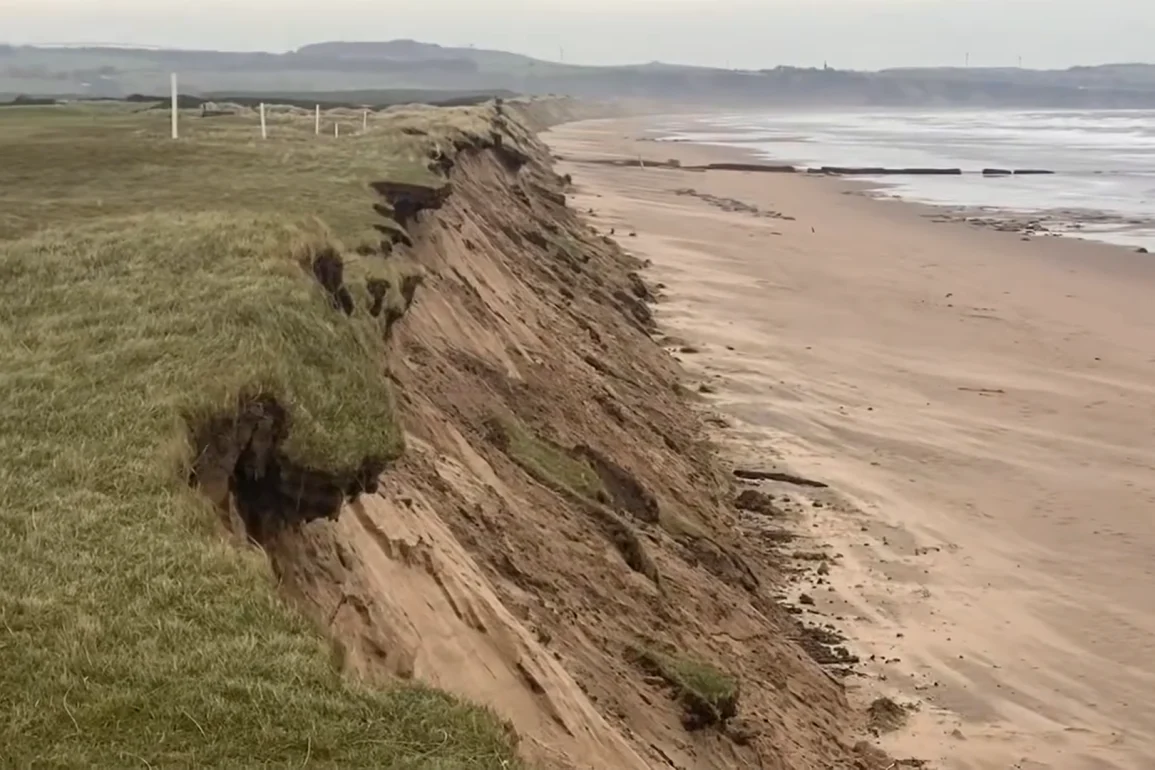Montrose, a coastal town in north-east Scotland, is facing severe erosion problems due to climate change, which threatens local infrastructure and a historic golf course. The Dynamic Coast report of 2021 indicated that Montrose could lose up to 120 meters of its coastline over 40 years, with an average erosion rate of 3 meters annually.
However, last year’s severe storms resulted in an unprecedented 7 meters of erosion in just one year. The community fears the upcoming storm season, given the record-breaking storms and their impact on the beach and surrounding areas.
The recent history of erosion at Montrose has been alarming, with EnviroCentre’s December report noting that the average retreat rates have ranged between 2.8 and 7 meters annually. This trend is expected to continue or worsen with ongoing climate change.

The storms have caused significant damage, including the collapse of Montrose’s beach promenade during Storm Babet in November. The impact of these storms has been so severe that long-time residents, like David Wood, acknowledge that the intensity and frequency of these storms are indicative of climate change.
The erosion has had a profound effect on Montrose Golf Links, a course with a history spanning over 460 years. The sea has advanced 70 meters in the last 30 years, causing parts of the course to disappear.
Studies by Angus Council and Dynamic Coast suggest that without urgent action to maintain the dunes at Montrose Bay, the town could face severe flooding. Local authorities and community members are advocating for immediate intervention to prevent further erosion and protect residential areas.
Emergency work is planned to start in April 2025, focusing on beach renourishment by adding vast quantities of sand. The estimated cost of this short-term solution is £2 million, but Angus Council is £50 million in debt, complicating funding efforts.
David Wood mentioned that the council is working on an economic case to secure funding from the Scottish government. While renourishment is a temporary fix, it is essential to provide time for developing long-term solutions, although funding for these remains uncertain.
The Scottish government has recognized the urgency of Montrose’s situation, with Màiri McAllan, the secretary for transport, net zero, and just transition, announcing a £440,000 grant to Angus council.
The government emphasizes the immediate threat posed by the climate emergency and its commitment to collaborating with local communities to address coastal erosion. The proactive measures planned for Montrose are crucial to mitigating the impacts of climate change and preserving the town’s infrastructure and heritage.

